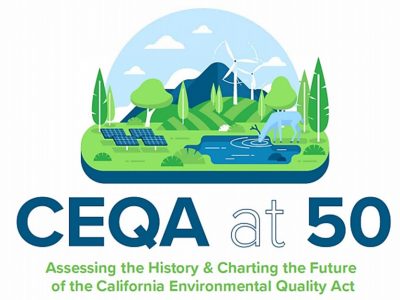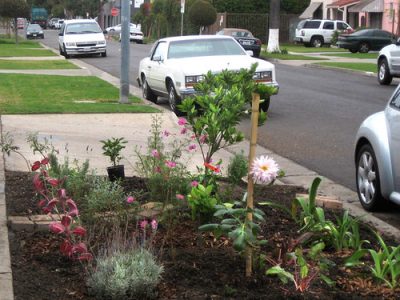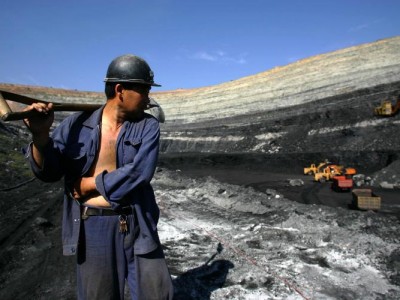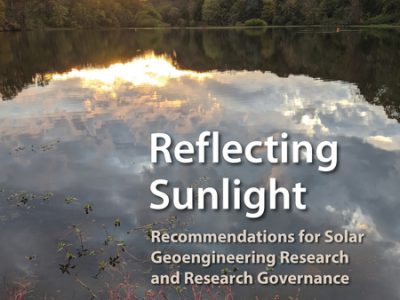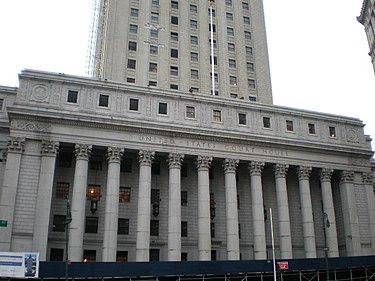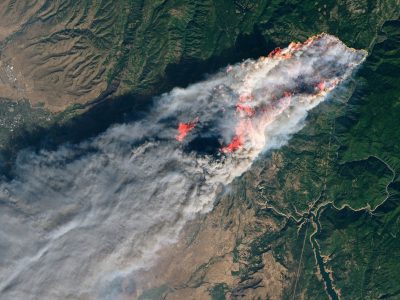U.C. Davis School of Law Hosts “CEQA at 50” Conference on April 16th
Virtual Event Commemorates Past, Predicts Future of the California Environmental Quality Act
Now a half-century old, the California Environmental Quality Act (CEQA) remains California's most important, cross-cutting and controversial environmental law. Originally patterned on the 1969 National Environmental Policy Act, CEQA has over the decades become a more powerful law than its federal counterpart. And while numerous other states have adopted their own "little NEPA" statutes, CEQA is the strongest such law in the nation: in addition to informing decisi...
CONTINUE READINGGuest Contributors Kelsey Manes & Ashley Sykora: State Should Clean Up Los Angeles Parkways Impacted by Exide Pollution
Communities for a Better Environment and UCLA Environmental Law Clinic Urge State Agency to Reevaluate Inequitable Cleanup Proposal
We are UCLA Law students enrolled in the Frank G. Wells Environmental Law Clinic, a class in which students work on behalf of community and environmental groups to help advance client goals through legal advocacy. This semester, we worked with Communities for a Better Environment, a community-based environmental justice organization that works in heavily polluted urban areas, to help protect public health from environmental harms caused by the Exide battery recycling...
CONTINUE READINGCreating New Jobs in Coal Country and the Oil Patch
How can we help carbon-dependent communities transition economically?
One of the goals of Biden’s clean energy and infrastructure proposals is to provide an economic boost to people who will otherwise lose out in the transition to a sustainable economy. He has similar plans for “environmental justice” communities. This is a great goal, but it may be more difficult than it seems. In a 2020 article, economist Timothy Barik provided a close look at state incentives for businesses to locate in distressed communities. This isn’...
CONTINUE READINGDesigning Policy to Advance Direct Air Capture of Carbon Dioxide
Direct air capture and sequestration of carbon dioxide will be central to climate policy this century, but how can we advance it through policy?
It is becoming increasingly likely that if the world is to avoid warming beyond 1.5 or 2 degrees Celsius that we will have to actively remove carbon dioxide from the atmosphere, rather only rapidly decarbonizing global economies. Without carbon dioxide removal, the rate of decarbonization that would be required to meet a 1.5 or 2 degrees standard involves relatively unlikely massive and rapid changes in global economies and societies. Indeed, many of the leading models f...
CONTINUE READINGBiden’s Infrastructure Plan: FAQs
Yes, it’s a big deal. And yes, it’s politically dicey.
Biden has announced a $2 trillion infrastructure plan, with a heavy focus on climate-related investments. The plan is very complicated, and the news coverage hasn’t been all that helpful. Here are the key questions we should be asking about the plan, along with my best attempts to answer. Q: What’s in the plan? A: It’s a very complicated plan even though many details haven’t been filled in. Utility Dive has nicely summarized some of the key features: ...
CONTINUE READINGThe US National Academies on Solar Geoengineering Research and Governance
Four Emmett Institute scholars react to an important new report
A few of us are part of the Emmett Institute's Geoengineering Governance Project, where we study the legal and policy issues presented by solar geoengineering and carbon dioxide removal technologies. On the former set of technologies—that is, reflecting a little incoming sunlight to cool the Earth and temporarily counteract heating from greenhouse gases—the US National Academies of Science, Engineering, and Medicine recently issued an important report Reflecting Sunl...
CONTINUE READINGMore NYC Oil
Second Circuit Creates Climate Change Preemption
A quick follow-up to Dan Farber’s post this morning regarding the Second Circuit ruling in City of New York v. Chevron. I represented the State of California in the 2011 case, AEP v. Connecticut, in which the U.S. Supreme Court ruled that federal common law applied to interstate climate change pollution (emissions of greenhouse gases), but that it was “displaced” by the federal Clean Air Act. As Dan notes, the Second Circuit, in a seriously contorted opinio...
CONTINUE READINGAppeals Court Nixes NYC Climate Lawsuit
With a clever if contrived argument, the Second Circuit tries to eliminate climate change litigation.
On Friday, the Second Circuit issued an important decision in a lawsuit against the oil industry. New York City had sued the oil companies for harms relating to climate change. The appeals court ordered the case dismissed, on the ground that any harm relating to fossil fuel is exclusively regulated by the Clean Air Act. The ruling is a setback for the plaintiffs in similar cases — how much of a setback remains to be seen. The court’s analysis is very complicat...
CONTINUE READINGDeforestation and the Climate Crisis in a Time of Pandemic
Despite the pandemic-induced global economic contraction, deforestation increased last year, with significant increases in the destruction of primary tropical forests.
Earlier this week, the World Resources Institute released its first assessment of global forest loss for 2020, offering a chance to take stock of what happened to the world’s forests during the pandemic. The news is not good. Despite a shrinking global economy, deforestation increased around the world in 2020. In temperate regions, some of the most significant forest loss occurred because of unprecedented fires. Here in California, more than 4 mill...
CONTINUE READINGThe Green MAGA-Deal Goes Public!
It's something no one expected, and for good reason.
There were gasps of astonishment when Donald Trump, Mitch McConnell, and Bernie Sanders took the stage together. The gasps turned into stunned silence as Trump began to speak. The trio were there, Trump said, to announce something HUGE, something no one ever expected: the world's biggest plan for climate action. Trump began by denouncing the media for portraying him as weak on climate change, calling himself the "greatest climate president since Abraham Lincoln."�...
CONTINUE READING



